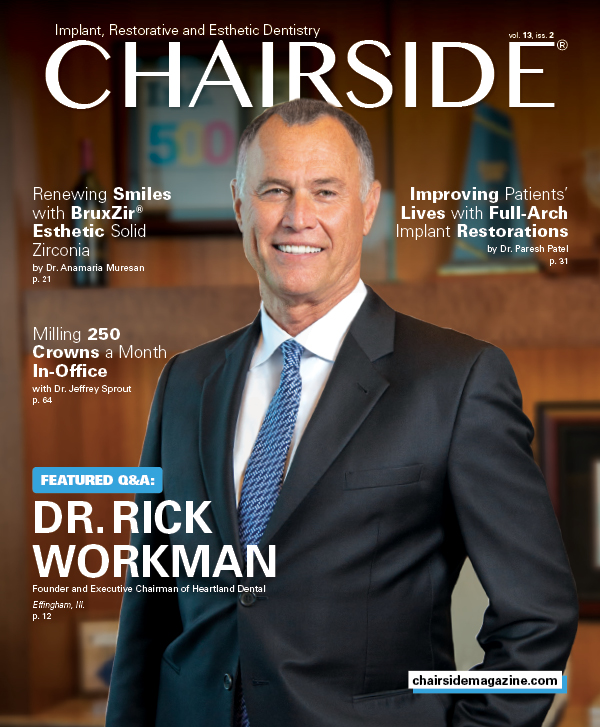Making Better Crowns Using Artificial Intelligence (AI)
Dentists have wondered when the newest technologies that have contributed to communication, manufacturing and software development will begin to make their mark in dental care. Until recently, the utilization of artificial intelligence (AI) in dentistry was largely untapped because of the difficulty of transferring this amazing technology to real-life solutions. Now, however, AI is enabling the delivery of precision-fit crowns — directly from the innovative dental lab or the next-generation in-office mill.
Glidewell Dental is using AI to automatically generate advanced dental restorations, designed to provide perfect fit and ideal function, while exceeding esthetic expectations. This is accomplished through generative adversarial networks, or GANs, which MIT Technology Review has declared one of the “10 breakthrough technologies of 2018.” The approach uses sophisticated algorithms to reduce the amount of manual CAD adjustments required to produce restorations, saving CAD technicians a significant amount of time in the laboratory. In addition, when doctors choose to mill crowns in their practice with the glidewell.io™ In-Office Solution (Glidewell Direct; Irvine, Calif.), the design is AI-enabled, which allows dentists to spend more time treating patients and less time at the computer.
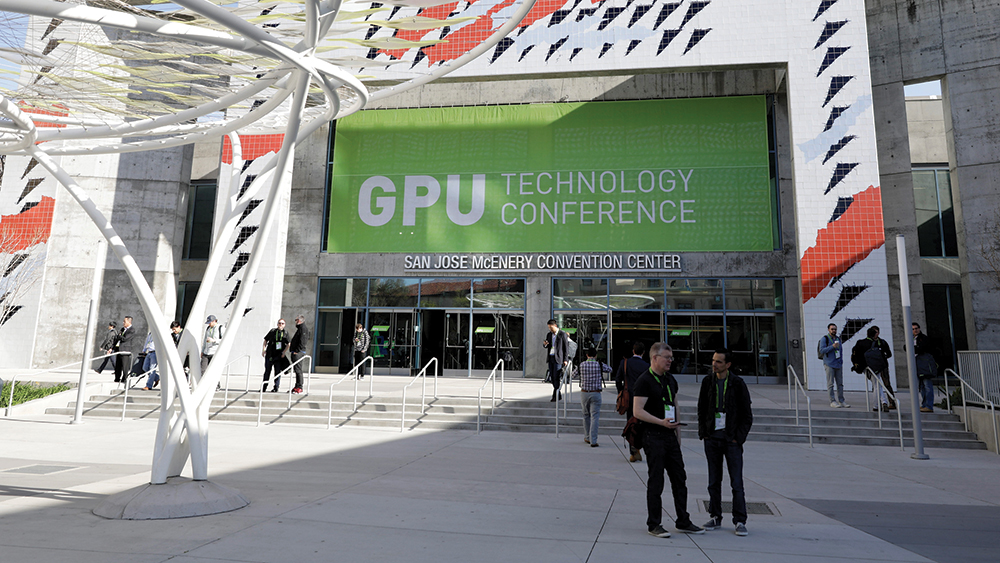
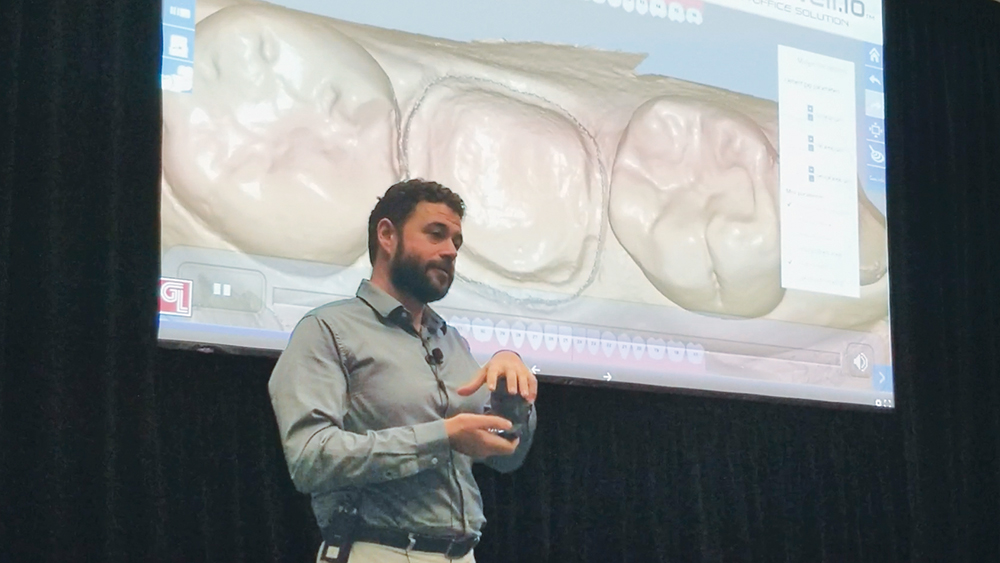
Dr. Sergei Azernikov delivers a presentation on AI in dentistry at the NVIDIA GPU Technology Conference, a platform for key science and technology leaders in the realm of AI and deep learning.
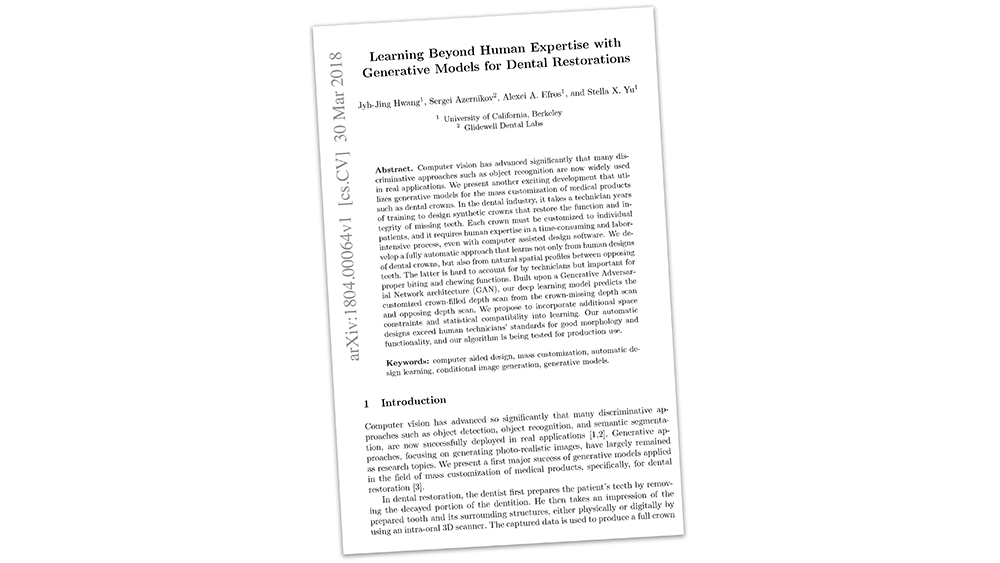
Dr. Azernikov’s research paper, coauthored with scientists at the University of California, Berkeley, describes how AI techniques produce advanced restorations designed to perfectly fit the patient’s dentition, provide ideal chewing function, and exceed esthetic expectations.
The advancements made at Glidewell Dental in the field of AI have attracted the attention of the IT community. “There’s a lot of excitement around our work because, until now, real-world, tangible applications of GANs did not exist,” said Dr. Sergei Azernikov, machine learning team lead at Glidewell Dental. “With GANs, people initially generated images of celebrities or cats and dogs, but there’s nothing that comes close to what we’re doing here in restoration design. To my knowledge, this is the first time anybody has generated a physical object with this technique. And we’re not creating just ‘any’ object — we’re manufacturing precise, functional and esthetic crowns, with designs based on many years of dental expertise. For doctors, this means more consistent dental restorations than ever before and the opportunity to treat patients faster, resulting in improved treatment outcomes.”
For doctors, this means more consistent dental restorations than ever before and the opportunity to treat patients faster, resulting in improved treatment outcomes.
As a leader of the effort to put GANs into practice, for the past two years Dr. Azernikov has been an invited speaker at the NVIDIA GPU Technology Conference, the premier event on AI and deep learning. At the March event held in Silicon Valley, Dr. Azernikov brought on University of California, Berkeley, collaborator Jyh-Jing Hwang to copresent research from their recently published paper, outlining the many benefits of AI in crown design and milling.
“There was a lot of interest,” said Dr. Azernikov. “It was very well-received by the technology community.”
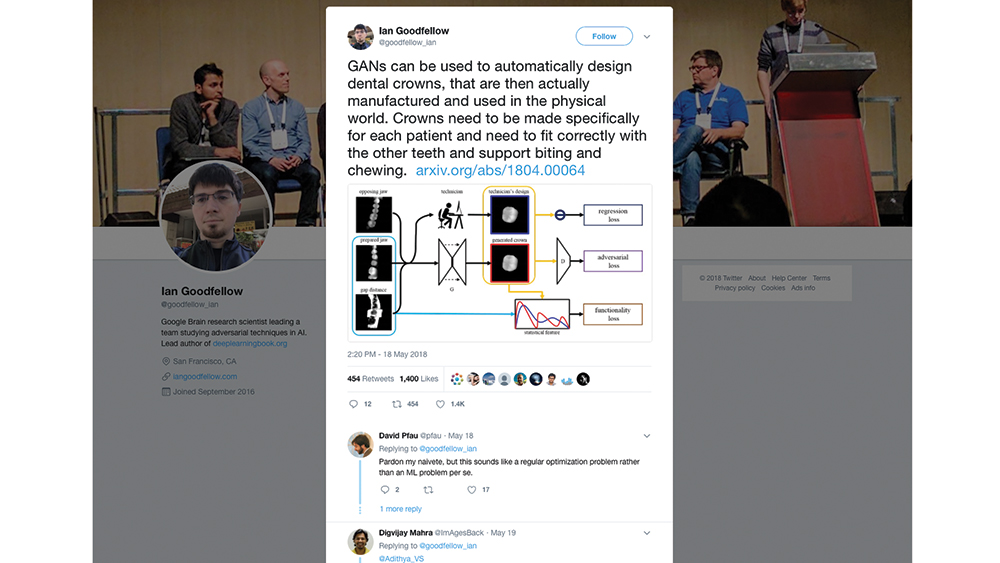
Ian Goodfellow, Google Brain research scientist and GANs technique inventor, shares news about the innovative AI technology at Glidewell Dental on Twitter.
The conference was attended by key experts from tech companies involved in AI and deep learning, including Google, Intel, IBM and Facebook. The enthusiasm expressed at the conference about the use of GANs and AI technology at Glidewell Dental was followed by widespread attention on social media and in the popular press.
“Until now, practical uses for AI have been limited to a very small circle of traditionally data-driven companies, such as Google, Facebook, Amazon or Microsoft,” said Dr. Azernikov. “Glidewell Dental has essentially broken that circle, as a dental technology company using AI in production, helping dentists provide the most advanced restorative techniques to their patients.”
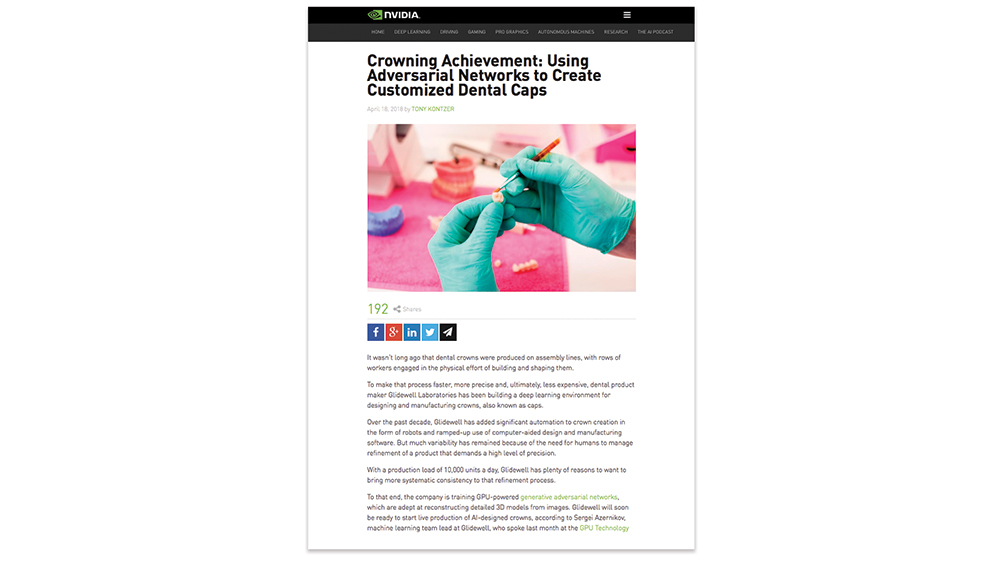
AI computing leader NVIDIA blogs about the deep learning environment Glidewell Dental has developed for designing and manufacturing crowns.
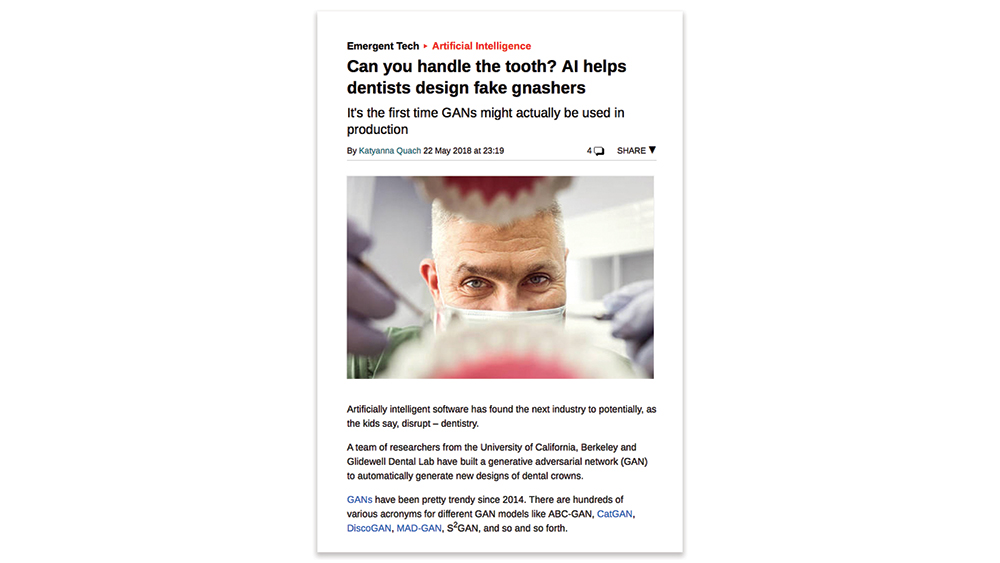
Popular tech publication The Register explores the futuristic restorative capabilities at Glidewell Dental.
Dr. Azernikov brings a unique perspective to restorative dentistry. He graduated college with a degree in computational geometry and computer graphics, and earned his Ph.D. at the Technion – Israel Institute of Technology, one of the world’s top science and technology research universities. Dr. Azernikov then worked in the biomedical industry before joining Glidewell Dental as a developer of FastDesign™ CAD software in 2012. While developing FastDesign automation, his goal was to simplify crown design — to minimize the tediousness of making manual adjustments, while still ensuring the highest level of accuracy and consistency in the results. As the AI field emerged on the scene, Dr. Azernikov spearheaded a machine learning team at Glidewell Dental and collaborated with leading scientists to put his vision into practice.
AI offers doctors a wide range of potential benefits, including the ability to make treatment decisions or perform procedure-related tasks with more speed and accuracy than ever before. What’s more, AI provides the opportunity for doctors to improve the quality of restorations they prescribe to their patients, thereby elevating patient treatment. “The field is moving very fast, but nevertheless, we’re just in the beginning of this wave,” Dr. Azernikov said. “AI has produced incredible results. It’s definitely going to become even more integral to restorative dentistry as it goes into the mainstream.”
AI provides the opportunity for doctors to improve the quality of restorations they prescribe to their patients.

